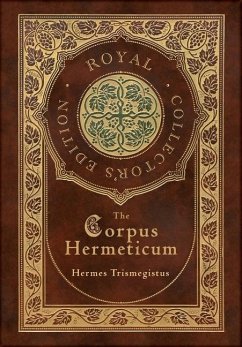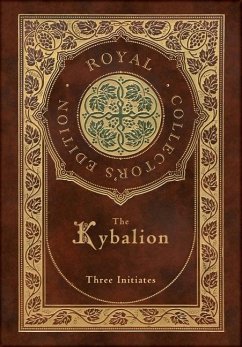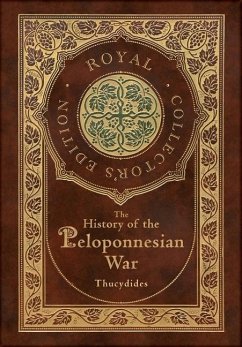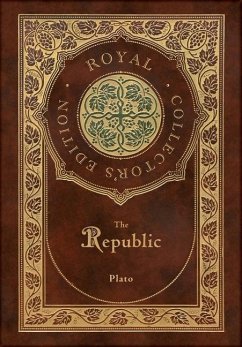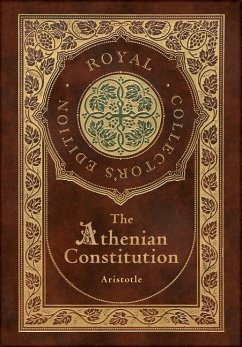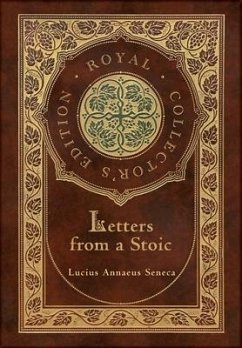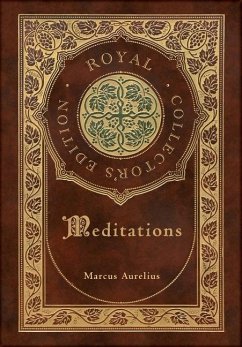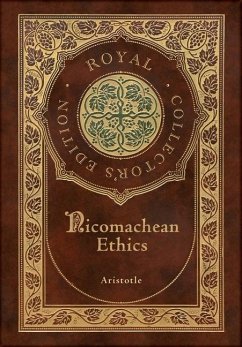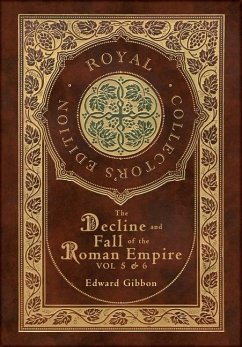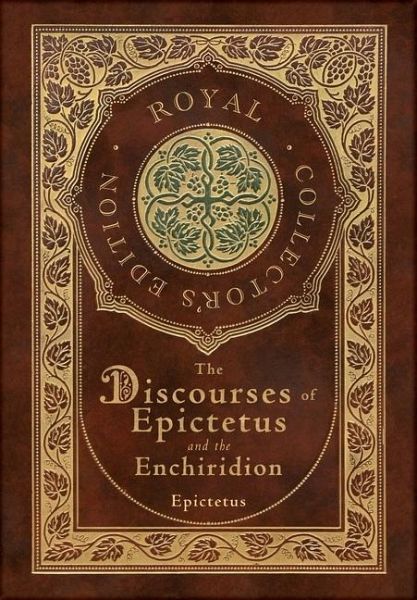
Epictetus
Gebundenes Buch
The Discourses of Epictetus and the Enchiridion (Royal Collector's Edition) (Case Laminate Hardcover with Jacket)
Versandkostenfrei!
Versandfertig in über 4 Wochen

PAYBACK Punkte
21 °P sammeln!




The Discourses of Epictetus are a series of practical informal lectures. Epictetus directs his students to focus attention on their opinions, anxieties and desires so they may never fail to get what they desire. Also included is the Enchiridion.
Epictetus (c. 55 - 135 AD) was a Greek Stoic philosopher. He was born a slave at Hierapolis, Phrygia (present day Pamukkale, Turkey) and spent his youth as a slave in Rome to Epaphroditos, a wealthy freedman and secretary to Nero. Early in life, Epictetus acquired a passion for philosophy and, with the permission of his wealthy owner, he studied Stoic philosophy under Musonius Rufus, which allowed him to rise in respectability as he grew more educated. Somehow, he became crippled. Origen stated that his leg was deliberately broken by his master. Simplicius stated that he had been lame from childhood. Epictetus obtained his freedom sometime after the death of Nero in 68 AD, and he began to teach philosophy in Rome. About 93 AD Emperor Domitian banished all philosophers from the city, and Epictetus went to Nicopolis in Epirus, Greece, where he founded a philosophical school. His most famous pupil, Arrian, studied under him when a young man (c. 108 AD) and claimed to have written the famous Discourses from his lecture notes, which he argued should be considered comparable to the Socratic literature. Arrian describes Epictetus as being a powerful speaker who could "induce his listener to feel just what Epictetus wanted him to feel." Many eminent figures sought conversations with Epictetus. Emperor Hadrian was friendly with him, and may have listened to him speak at his school in Nicopolis. Epictetus lived a life of great simplicity, with few possessions. He lived alone for a long time, but in his old age he adopted a friend's child who otherwise would have been left to die, and raised him with the aid of a woman. It is unclear whether Epictetus and she were married. He died sometime around 135 A.D. After his death, according to Lucian, his oil lamp was purchased by an admirer for 3,000 drachmae.
Produktdetails
- Verlag: Royal Classics
- Seitenzahl: 352
- Erscheinungstermin: 15. November 2020
- Englisch
- Abmessung: 231mm x 163mm x 32mm
- Gewicht: 700g
- ISBN-13: 9781774378533
- ISBN-10: 1774378531
- Artikelnr.: 64374240
Herstellerkennzeichnung
Libri GmbH
Europaallee 1
36244 Bad Hersfeld
gpsr@libri.de
Für dieses Produkt wurde noch keine Bewertung abgegeben. Wir würden uns sehr freuen, wenn du die erste Bewertung schreibst!
Eine Bewertung schreiben
Eine Bewertung schreiben
Andere Kunden interessierten sich für


